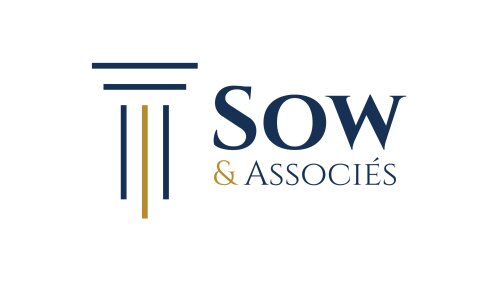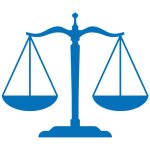Best Education Law Lawyers in Senegal
Share your needs with us, get contacted by law firms.
Free. Takes 2 min.
Or refine your search by selecting a city:
List of the best lawyers in Senegal
About Education Law in Senegal
Education Law in Senegal encompasses a range of legal issues related to the operation and regulation of educational institutions, the rights and responsibilities of students, educational providers, and staff, as well as the implementation of public policy in education. The legal framework seeks to ensure that educational standards are maintained and that the rights of all parties involved in the education sector are protected. Senegal’s commitment to education is reflected in its laws, which strive to promote access to quality education, gender equality, and the integration of human rights principles.
Why You May Need a Lawyer
There are various situations where individuals or institutions may require legal assistance in the realm of Education Law in Senegal. Some common scenarios include disputes regarding school admissions, disciplinary actions taken against students or staff, discrimination based on gender, disability, or ethnicity, issues relating to curriculum standards, and cases concerning the rights of children and parents. Additionally, educational institutions might seek legal advice when drafting or reviewing policies and contracts to ensure they are compliant with national legislation.
Local Laws Overview
Seneaglese Education Law is primarily shaped by laws such as the Law No. 91-22 of 16 February 1991 on Education Policy. Key aspects include the right to education, which is enshrined in the Constitution, and the legal mandate to attend school, typically from the ages of six to sixteen. The framework also covers the organization of public and private educational institutions, the roles of local, regional, and national educational authorities, and policies relating to the inclusive education of children with disabilities. Another important aspect is the push to achieve gender parity in schools by addressing barriers to girls' education.
Frequently Asked Questions
What are my rights if my child is denied admission to a public school?
If your child is denied admission to a public school, you have the right to seek an explanation from the school authorities. If the explanation is unsatisfactory or you believe the denial was unjust, legal assistance can help you challenge the decision based on grounds specified in local laws.
Can a school expel my child without prior notice?
Expulsion of a student typically requires a process that includes prior notice and opportunities for the student to present their side. A lawyer can evaluate whether the school followed due process.
Are there legal actions I can take if my child experiences bullying at school?
Yes, you can take legal actions against the school if it fails to address bullying. Schools are required to provide a safe environment; neglecting this duty can result in legal consequences.
How can I ensure my child with a disability receives appropriate education?
Senegalese law mandates inclusive education for children with disabilities. You can work with school administrators to ensure that necessary accommodations are made, and legal advice may be sought if these rights are not honored.
Can I challenge the curriculum or teaching materials used in my child's school?
Challenges to curriculum or teaching materials can be made if they do not meet national standards or violate individual rights. Consulting with a lawyer can help determine the proper course of action.
What steps can I take if I suspect discrimination in a school?
If you suspect discrimination, you should document all instances and seek legal guidance to address and report the situation. There are legal protections against discrimination in educational settings.
Is homeschooling recognized under Senegal law?
Homeschooling is not the norm in Senegal and might not be formally recognized under current education laws, which emphasize formal school attendance. Legal experts can provide guidance based on specific circumstances.
Who enforces education law in Senegal?
Education law in Senegal is enforced by the Ministry of National Education, along with regional and local educational bodies that oversee compliance with legal and policy guidelines.
How are private schools regulated in Senegal?
Private schools are subject to regulation under the same base legal framework as public schools, with additional requirements for registration, curriculum alignment, and adherence to educational standards set by the state.
What legal remedies are available for wrongful teacher dismissals?
Teachers who believe they have been wrongfully dismissed can seek legal recourse by filing a complaint with labor courts or through arbitration or mediation with the assistance of a lawyer.
Additional Resources
For further assistance, individuals can reach out to the Ministry of National Education, local educational authorities, or legal aid organizations. NGOs involved in education rights, such as ANCEFA (African Network Campaign on Education For All), and UNICEF Senegal also offer support and resources related to educational and children's rights.
Next Steps
If you require legal assistance with an education matter, consider contacting a lawyer specializing in education law in Senegal. Prepare any relevant documentation related to your case or situation, and seek a consultation to discuss your rights and possible legal actions. Legal aid services may be available for those who meet certain criteria, ensuring that everyone has access to justice concerning educational matters.
Lawzana helps you find the best lawyers and law firms in Senegal through a curated and pre-screened list of qualified legal professionals. Our platform offers rankings and detailed profiles of attorneys and law firms, allowing you to compare based on practice areas, including Education Law, experience, and client feedback.
Each profile includes a description of the firm's areas of practice, client reviews, team members and partners, year of establishment, spoken languages, office locations, contact information, social media presence, and any published articles or resources. Most firms on our platform speak English and are experienced in both local and international legal matters.
Get a quote from top-rated law firms in Senegal — quickly, securely, and without unnecessary hassle.
Disclaimer:
The information provided on this page is for general informational purposes only and does not constitute legal advice. While we strive to ensure the accuracy and relevance of the content, legal information may change over time, and interpretations of the law can vary. You should always consult with a qualified legal professional for advice specific to your situation.
We disclaim all liability for actions taken or not taken based on the content of this page. If you believe any information is incorrect or outdated, please contact us, and we will review and update it where appropriate.
Browse education law law firms by city in Senegal
Refine your search by selecting a city.










